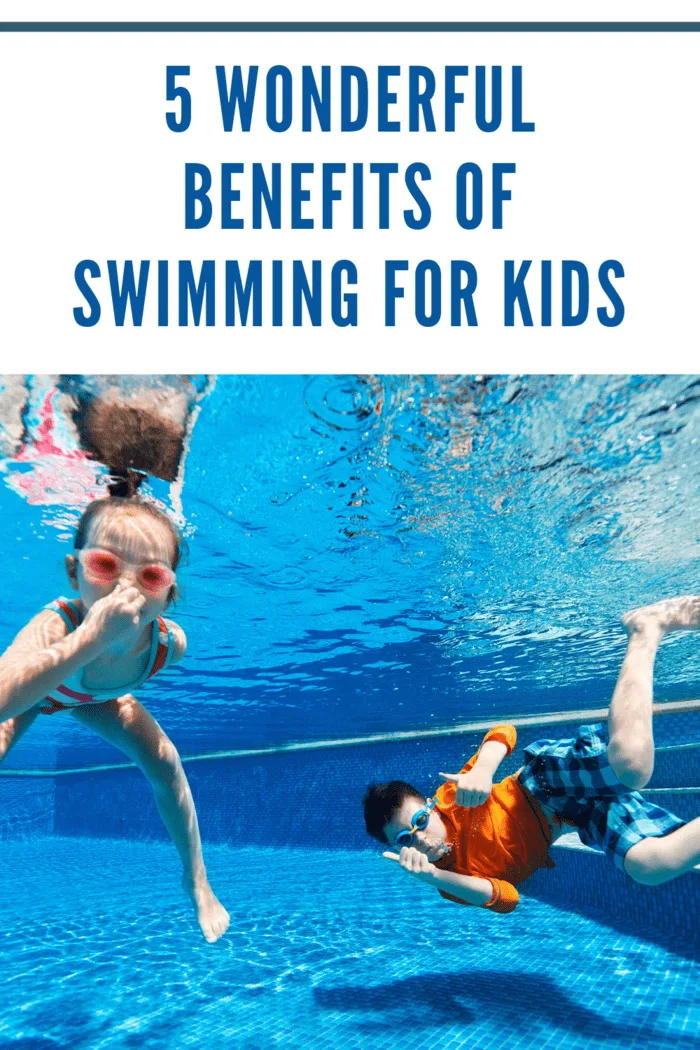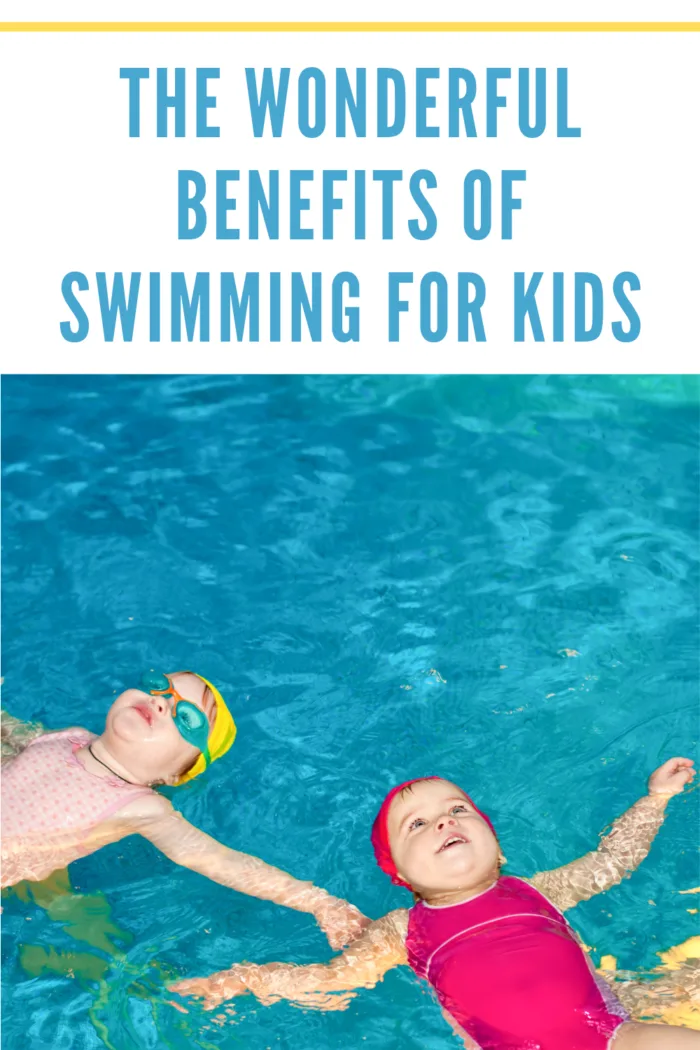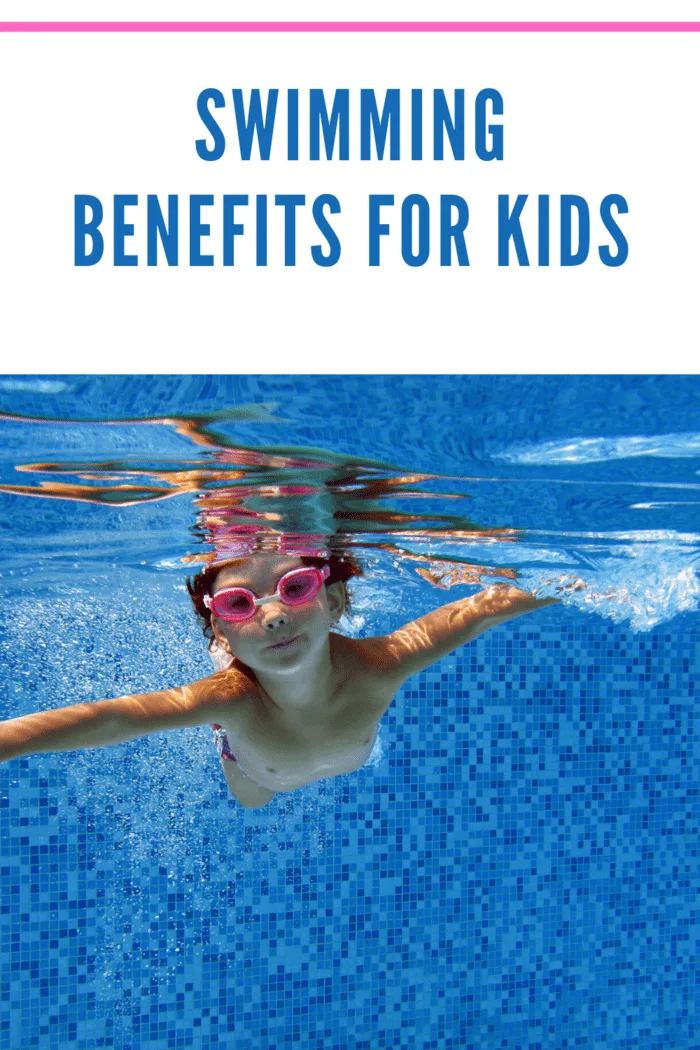Unlocking the Magic: 5 Incredible Benefits of Swimming for Kids
When it comes to the health and well-being of children, engaging in swimming activities offers a multitude of wonderful benefits. Far beyond the mere joy of splashing water and engaging in playful antics, swimming has a profound positive impact on young individuals. From bolstering their overall health and fitness levels to nurturing their physical strength, swimming has proven to be an invaluable activity during the early stages of life.
Enrolling your children at Aquatics Academy for swimming lessons opens up a world of advantages. These advantages extend far into the future, granting your kids the lifelong gift of health and fitness. Investing in their swimming journey is a decision you will never regret.
Now, let us delve into the myriad of physical, mental, and emotional benefits that swimming bestows upon children. By immersing themselves in the watery realm, young swimmers embark on a transformative experience that impacts various aspects of their well-being.

5 Wonderful Benefits of Swimming for Kids
It Can Help Autistic Kids
Children with autism can benefit tremendously from swimming lessons. It can be an excellent way to help them minimize drowning risks and make them more confident, joyous, and brave. It can also enhance learning in other realms, make their bodies stronger, and reduce anxiety.
Swimming can be an incredibly beneficial activity for children on the autism spectrum, providing them with unique advantages and opportunities for growth.
Here are some ways in which swimming can benefit autistic children:
- Sensory Integration: Many children with autism experience sensory sensitivities or challenges. Swimming offers a multisensory experience, engaging the senses of touch, sight, hearing, and proprioception (body awareness through movement). The water’s resistance and pressure provide a soothing and calming effect, helping autistic children regulate their sensory input and improve sensory integration skills.
- Motor Skills Development: Swimming involves various movements and coordination, which can aid in the development of fine and gross motor skills in autistic children. Activities like kicking, paddling, and floating promote muscle strength, coordination, balance, and overall physical development.
- Social Interaction: Swimming lessons often take place in group settings, providing opportunities for social interaction and peer engagement. Autistic children can learn social skills, such as taking turns, following instructions, and working together with others, in a supportive and structured environment.
- Self-Confidence and Self-Esteem: Achieving success in swimming, whether it’s learning a new stroke or accomplishing a specific goal, can boost the self-confidence and self-esteem of autistic children. Mastering swimming skills and overcoming challenges in the water can translate into increased confidence in other areas of their lives.
- Relaxation and Stress Reduction: Water has a naturally calming effect and can help reduce anxiety and stress levels in autistic children. Swimming provides a therapeutic outlet, allowing them to relax, unwind, and escape from daily pressures. The rhythmic movements and sensory experiences in the water can promote a sense of tranquility and overall well-being.
- Water Safety Skills: Learning to swim equips autistic children with essential water safety skills, reducing the risk of accidents or incidents near bodies of water. This knowledge can provide them with greater independence and confidence when engaging in water-related activities.
It’s important to note that each child is unique, and their response to swimming may vary. Some children may require additional support or accommodations during swimming lessons. Working with trained instructors who have experience with special needs children can help create a safe and inclusive environment that maximizes the benefits of swimming for autistic children.

They Cultivate Better Skills for their Life
In most cases, kids who partake in swimming lessons turn out to be more motivated, self-disciplined, and bolder to succeed. This may result from dealing with water, which makes them face new challenges mentally and psychologically.
Swimming goes beyond being a recreational activity; it also contributes to the development of various life skills in children.
Here are some ways in which swimming can help children develop important life skills:
- Discipline and Goal Setting: Swimming requires discipline and regular practice. Children who engage in swimming learn the importance of setting goals, following a training schedule, and working consistently towards improvement. They develop a sense of commitment and perseverance, which can be transferred to other areas of their lives, such as academics or hobbies.
- Time Management: Swimming lessons and practice sessions often involve a structured schedule. Children need to manage their time effectively to balance their swimming commitments with other responsibilities, such as schoolwork or extracurricular activities. Learning to prioritize and allocate time efficiently helps them develop essential time management skills that will benefit them in various aspects of life.
- Focus and Concentration: Swimming requires concentration and mental focus. Children must pay attention to their technique, breathing, and body position in the water. Through swimming, they learn to block out distractions and stay focused on the task at hand. This ability to concentrate can be transferred to academic pursuits, problem-solving, and other areas where sustained focus is necessary.
- Perseverance and Resilience: Learning to swim can be a challenging process, especially when acquiring new strokes or improving performance. Children experience setbacks, face difficulties, and encounter moments of frustration. However, through perseverance and resilience, they learn to overcome obstacles, push through challenges, and achieve their desired outcomes. These qualities of perseverance and resilience are essential in navigating life’s ups and downs.
- Confidence and Self-Esteem: As children progress in their swimming abilities and achieve personal milestones, their confidence and self-esteem naturally improve. Learning new skills, overcoming fears, and receiving recognition for their achievements in the water enhance their belief in their capabilities. This newfound confidence extends beyond the pool, positively impacting their interactions, decision-making, and overall self-perception.
- Teamwork and Cooperation: Swimming can involve team-based activities, such as relays or synchronized swimming routines. Children learn the value of teamwork, cooperation, and collaboration as they work together with their teammates towards a common goal. They develop communication skills, learn to support and encourage others, and understand the importance of working harmoniously in a group setting.
- Water Safety and Survival Skills: Learning to swim equips children with essential water safety and survival skills. They become aware of the potential dangers and learn how to navigate water environments safely. These skills provide them with the knowledge and confidence to engage in water-related activities responsibly, enhancing their overall safety and well-being.
Swimming provides a holistic approach to skill development, combining physical, mental, and social aspects. It offers children opportunities to acquire and refine life skills that will serve them well in their future endeavors.

Kids will Grow Stronger
The first benefit of swimming comes from the aspect of water resistance. Swimming works out the body from head to toe so your child will develop muscular strength and become more flexible. In addition, water sculpts the kid’s body more harmoniously than other land activities or sports. Finally, swimming makes your child stronger than before and helps them become more coordinated than those that defy swimming.
Swimming is an excellent activity for children to develop strength and improve their overall physical fitness.
Here’s how swimming helps kids grow stronger:
- Full-Body Workout: Swimming engages multiple muscle groups simultaneously, providing a comprehensive full-body workout. Different strokes, such as freestyle, backstroke, breaststroke, and butterfly, target various muscles, including the arms, shoulders, back, chest, core, and legs. Regular swimming sessions allow children to build strength in these muscle groups, leading to overall physical development.
- Resistance Training: Water offers natural resistance, requiring the body to work against it with every movement. This resistance helps strengthen muscles as they continuously push and pull through the water. The resistance provided by the water is gentle on joints, making swimming a low-impact form of exercise that is suitable for children of various ages and abilities.
- Cardiovascular Fitness: Swimming is an aerobic activity that increases heart rate and improves cardiovascular endurance. When children swim, their hearts work harder to pump oxygen-rich blood throughout the body. Regular cardiovascular exercise through swimming helps strengthen the heart and lungs, improving overall cardiovascular health and stamina.
- Core Strength: Swimming activates and strengthens the core muscles, including the abdominal and back muscles. These muscles play a crucial role in maintaining stability and balance in the water. By propelling themselves forward and maintaining a streamlined body position, children develop strong core muscles, which are essential for good posture and overall strength.
- Increased Flexibility: Swimming involves a wide range of motion and stretching of the muscles. The continuous stretching and extension of limbs while swimming help improve flexibility. As children reach, kick, and move their bodies in different ways, their muscles become more flexible and less prone to injury. Improved flexibility also enhances overall physical performance in other activities and sports.
- Improved Bone Density: Swimming is a weight-bearing exercise that helps improve bone density. The water’s buoyancy supports the body, reducing stress on the bones and joints. However, the resistance provided by the water still stimulates bone growth and strength development. Regular swimming can contribute to stronger bones, reducing the risk of conditions like osteoporosis later in life.
- Enhanced Muscle Endurance: Swimming requires repetitive movements over an extended period, which helps build muscle endurance. As children swim longer distances or spend more time in the water, their muscles adapt and become more resilient. Improved muscle endurance allows them to swim for more extended periods and perform physical activities with reduced fatigue.
By engaging in regular swimming activities, children can experience progressive improvements in their strength and physical fitness. Whether they swim for recreation or participate in competitive swimming, the combination of resistance, cardiovascular exercise, and muscle engagement promotes overall strength development and contributes to their growth and well-being.

Kids Explore and Learn More Through Swimming
Scuba diving is a great way to motivate kids to swim. It is also an educational activity for your children. Children can even get an opportunity to see fish though this may depend on the water depth.
Swimming provides a unique environment for children to explore, learn, and develop various skills.
Here are some ways in which kids can explore and learn more through swimming:
- Water Exploration: Swimming allows children to explore the aquatic environment firsthand. They can discover the properties of water, such as buoyancy, resistance, and pressure. Through play and experimentation, they learn how their bodies interact with water, how to move efficiently in different strokes, and how to adapt to changes in water conditions. This exploration helps them develop a deeper understanding of the physical world around them.
- Motor Skills Development: Swimming requires the coordination of multiple movements and the use of different muscle groups. As children learn and practice various swimming techniques, they improve their motor skills, including balance, coordination, and body control. These skills transfer to other activities, sports, and daily tasks, enhancing their overall physical abilities.
- Safety Skills: Swimming provides an opportunity for children to learn vital water safety skills. They gain knowledge about safe behaviors in and around water, including understanding pool rules, recognizing hazards, and practicing self-rescue techniques. Learning these skills empowers children to make informed decisions and stay safe when engaging in water-related activities.
- Confidence and Independence: As children become more proficient swimmers, they gain confidence in their abilities and develop a sense of independence. Learning to swim and navigate water environments gives them a sense of accomplishment and self-assurance. This confidence extends beyond swimming, positively influencing their willingness to explore new activities and tackle challenges in various aspects of life.
- Social Interaction: Swimming often takes place in group settings, such as swimming lessons or swim teams. Children have the opportunity to interact with peers, make friends, and learn social skills in a supportive environment. They develop teamwork, cooperation, and communication skills as they engage in group activities, relay races, or synchronized swimming routines.
- Problem-Solving and Critical Thinking: Swimming presents children with different challenges to overcome. They must learn to analyze and adapt to different water conditions, adjust their technique, and strategize to achieve their goals. By facing these challenges, children enhance their problem-solving and critical thinking abilities, learning to assess situations, make decisions, and adjust their approach accordingly.
- Personal Growth and Resilience: Through swimming, children experience personal growth and develop resilience. They learn that progress takes time, effort, and practice. They may face setbacks or encounter difficulties in mastering new skills, but through perseverance and determination, they can overcome obstacles. These experiences cultivate resilience, a growth mindset, and the understanding that setbacks are opportunities for learning and improvement.
Swimming offers a dynamic and engaging learning experience for children. It promotes physical, cognitive, and social development while fostering important life skills and a lifelong appreciation for water activities.
Kids Become Happier
It is the joy of every parent to see their children happy every day. Playing in water is enjoyable, and kids love the vibe that water provides. Also, it causes kids to develop confidence in everything they do since swimming forces them to get out of their comfort zones.
Swimming has a positive impact on children’s happiness and well-being for several reasons:
- Endorphin Release: Engaging in physical activity, such as swimming, triggers the release of endorphins in the brain. Endorphins are natural mood-boosting chemicals that create feelings of happiness and well-being. The combination of movement, water immersion, and the enjoyment of swimming can stimulate the release of endorphins, leading to an increase in overall happiness.
- Stress Relief: Swimming provides a sense of relaxation and stress relief. The rhythmic movements in the water, coupled with the buoyancy and weightlessness, create a soothing and calming effect on the body and mind. Swimming can help children unwind, reduce stress levels, and promote a sense of tranquility, contributing to their overall happiness.
- Enhanced Mental Well-being: Regular physical activity, such as swimming, is linked to improved mental health and well-being. Swimming releases pent-up energy and helps children manage emotions and reduce symptoms of anxiety and depression. The combination of exercise, fresh air, and being in a supportive and enjoyable environment can have a positive impact on children’s mental well-being, fostering a happier disposition.
- Social Interaction and Connection: Swimming often involves group lessons or team activities, providing opportunities for social interaction and connection with peers. Engaging in swimming activities together, whether it’s playing games, practicing skills, or cheering each other on, fosters a sense of camaraderie and belonging. Building social connections and friendships through swimming can contribute to children’s happiness and sense of social well-being.
- Sense of Achievement: Learning to swim and mastering new skills instills a sense of accomplishment and boosts self-confidence. As children progress and achieve their goals in swimming, they experience a sense of pride and fulfillment. This sense of achievement contributes to their overall happiness and encourages them to set and pursue further goals, both in and out of the pool.
- Joyful Play and Exploration: Swimming offers an environment that encourages joyful play and exploration. Children can engage in imaginative play, splash around, and experience the joy of being in the water. This freedom to play and explore their surroundings fosters a sense of wonder, curiosity, and spontaneity, leading to increased happiness and a sense of adventure.
- Body Positivity and Self-Acceptance: Swimming promotes body positivity and self-acceptance. In the water, children experience a sense of weightlessness and freedom from body limitations. Swimming allows them to focus on the joy of movement and the sensation of being in the water, rather than concerns about body image. This acceptance of themselves and their bodies contributes to improved self-esteem and overall happiness.
Swimming provides a holistic experience that combines physical activity, social interaction, relaxation, and personal achievement, all of which contribute to children’s happiness and well-being.
Final Thoughts
If you let your children receive training on how to deal with water, you will have given them a precious gift. This is because they are learning how to swim and engaging in all other water activities which have endless benefits to their health and mental and emotional development. It is correct to note the benefits of this article. Swimming helps autistic kids, helps kids develop better skills for life, and makes them stronger. They also explore more and learn a lot from swimming. Finally, your kids will become happier when they swim. So it is up to you to find a coach or a swimming academy to help your children learn how to swim so that they can enjoy these benefits.
